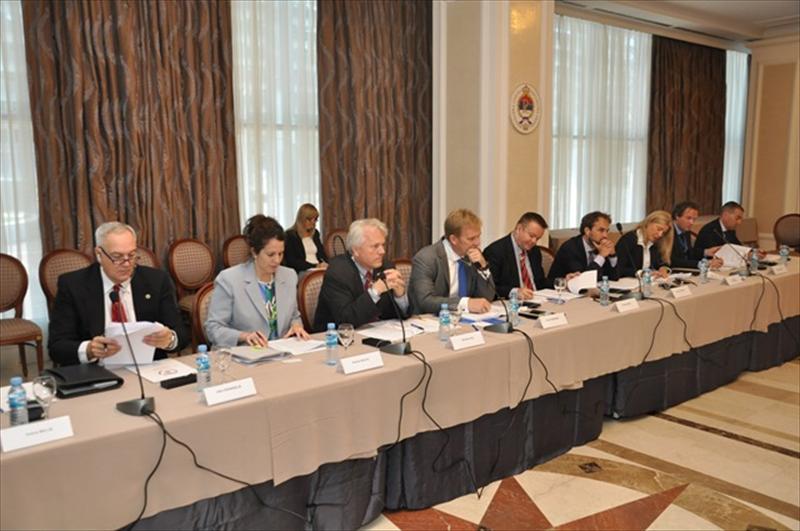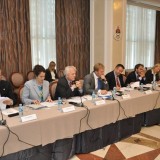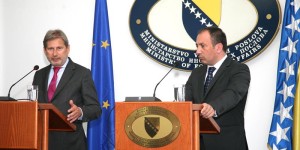Remarks by Brigitee Kuchar, EUD Programme Manager, at the Conference “Asset Seizure as an Instrument in the Fight Against Crime”
Dear Minister, distinguished guests, ladies and gentlemen,
It is my pleasure to welcome you in the name of the European Union to today’s Conference.
Fighting organised crime is one of the key priorities of the EU’s internal security policies and it is a priority in our cooperation with Bosnia and Herzegovina in the area of law enforcement.
The main motive for organised and other forms of serious crime is financial gain. Crime generates huge profits and these profits end up in the wrong hands.
It is known that confiscation of profits of crime hurts criminals most – and still, according to UN figures, at present, globally, less than 1 percent of proceeds of crime are frozen and confiscated.
At EU level, our goal is clear: crime should not be a profitable business! Therefore the Stockholm Programme and the Justice and Home Affairs Council Conclusions on confiscation and asset recovery adopted in 2010, emphasize effective identification, confiscation and re-use of criminal assets.
It is important to stress that confiscation is more than a legal procedure – it is tracing the assets, seizing and confiscating them through judicial procedures, storing and managing them, ensuring that they do not lose their value and eventually disposing of them in a suitable way. This chain of events will only be effective if there are no weak links.
In its Progress Report 2012 for Bosnia and Herzegovina, the European Commission stated that “mechanisms for confiscation of assets did not yet come into operation throughout the country”.
The asset forfeiture laws of Republika Srpska and the proposed draft laws at the Federation and at the state level are not harmonised and differ significantly from each other. There is evidence that only few confiscation orders get executed and the management of confiscated assets is still a challenge.
Today the same crime committed in different parts of the country leads to different consequences for criminals and criminals still benefit from the proceeds of crime even after serving their sentence. But also, victims don’t have the same legal protection throughout the country.
With the aim to assist Bosnia and Herzegovina in developing the most suitable way ahead on asset forfeiture, the EU Support to law enforcement project jointly with the EU Delegation and the EUSR have launched an initiative to bring together the most relevant stakeholders and to consult domestic and international expertise and experience.
This expert forum adopted joint minimal standards and possible solutions for assets forfeiture and financial investigations considering the EU acquis and the need to harmonise with other relevant legislation. We are glad to see, that there is an agreement on these standards.
What we would like to see next is the following:
First, at the level of legislation: these joint minimaum standards – adopted by the expert forum – need to be translated into existing and upcoming laws on asset forfeiture at state, entity and district level and the criminal codes and criminal procedure codes need to be amended where necessary.
Second, effective asset recovery structures need to be in place and functional.
Third, a mechanism for international cooperation needs to be developed, as asset recovery has to act across borders, just as organised crime does.
Let me finish by saying: what is needed most, is the joint understanding, the motivation and efforts of the law enforcement and judiciary community in Bosnia and Herzegovina in order to make sure that crime does not pay off any longer in this country.
Thank you!





